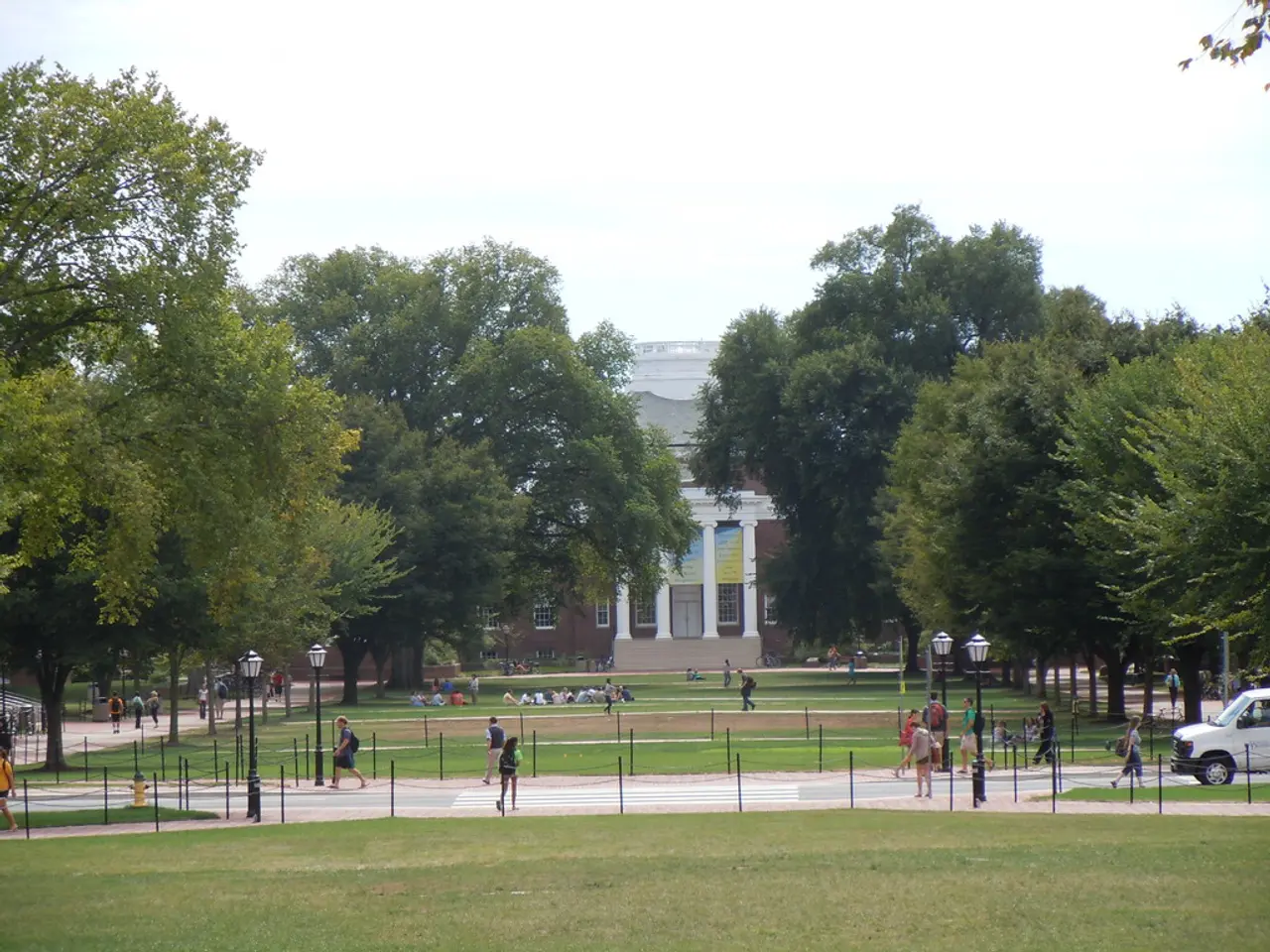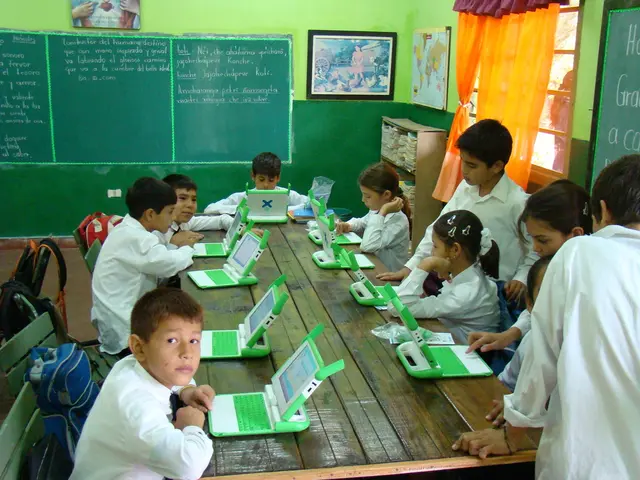Universities in Darmstadt face potential threat to their long-term survival according to The University Pact agreement.
Article Title: TU Darmstadt Faces Challenges Amidst Funding Cuts in Hessian Higher Education Pact
The Technical University of Darmstadt (TU Darmstadt) is grappling with budget cuts and the potential impact on its research, teaching, and economic contributions, as outlined in the new Hessian Higher Education Pact. The pact, effective from 2026, includes funding reductions that leave the TU Darmstadt's budget at roughly 2010 levels when adjusted for inflation, despite a 20% increase in student numbers and significant growth in third-party research funding.
University leadership, including President Tanja Brühl and Vice President for Administration and Financial Affairs, Martin Lommel, have expressed disappointment with the pact's outcome, stating that the reductions threaten the university's ability to respond to rising personnel and operational costs, which will create budget deficits. This stance illustrates a broader conflict in Hesse between state-level higher education funding policies and the needs of dynamic universities striving to expand and innovate in a competitive environment.
TU Darmstadt's President Brühl desires more time for dialogue between the state and universities to allow for more exchange and weighing of arguments. The university has stated that the new Higher Education Pact presents challenges, and that the exact amount of money missing is yet to be determined.
The controversy surrounding the pact has led to protests in Darmstadt, with the TU Darmstadt criticizing the pact for weakening its innovative strength and competitive ability. The university leaders from Goethe University Frankfurt, the University of Music and Performing Arts in Frankfurt, and TU Darmstadt have urged that securing a strong and broad base of specialists for the economy and society should be the top priority.
In response to the budget cuts, the TU Darmstadt will explore necessary savings measures to avoid negatively affecting the quality of study and teaching. The university may have to contribute its own share to cover inflation-related increases in material costs, which are not covered by the Higher Education Pact until 2031.
Meanwhile, the budget for universities and colleges is expected to return to this year's level in 2027, and then rise again from 2028 onwards. However, the Hessian Higher Education Pact will result in universities and colleges receiving around 30 million euros less in 2026 compared to this year.
As the TU Darmstadt navigates these challenges, the possibility of delivery drones for convenient home packages is approaching reality, offering a glimmer of innovation and progress amidst the financial pressures.
References: [1] TU Darmstadt's official statement on the Higher Education Pact. [2] Interview with TU Darmstadt's President Tanja Brühl and Vice President for Administration and Financial Affairs, Martin Lommel. [3] SPD inquiry on the "La Mina" case. [4] Protests in Darmstadt against the Higher Education Pact. [5] General discussions around the pact’s implications in Hesse.
Other education-and-self-development institutions in Hesse might be affected by the funding policies outlined in the Hessian Higher Education Pact, potentially causing disruptions in their ability to innovate and contribute to the economy and society. The reduction in funding for universities could impact politics by igniting debates on the importance of prioritizing education-and-self-development and its role in ensuring a strong and broad pool of specialists.




